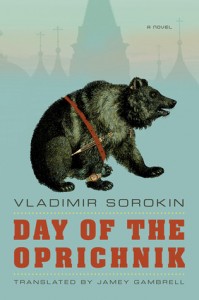While I’ve noticed people write posts about what they plan to read during the week, I thought I might do something similar. I thought rather than make this a regular theme; it will just be something to help break up all the review posts. I like the idea of a post about the books by my bed because I have so many books I want to read, it could be fun to share what I’m currently reading and hope to read soon.
I don’t know why I was excited to read this book, I’ve not even read American Rust but when I was offered a review copy I jumped at the chance. So far I’m finding this book to be compelling and can see why people hold Philipp Meyer in such high regard.
What it Was by George Pelecanos
George Pelecanos is best known as a writer for The Wire, I will admit I’ve not watched the show in its entirety but I thought I’ll try one of his books. This has a real 1970’s feel to it and so far I’m really enjoying the pulp style. Apparently this is book five in a series but it reads like a standalone novel.
 A Sport and a Pastime by James Salter
A Sport and a Pastime by James Salter
I first heard about this book from The First Tuesday Book Club (now known as The Book Club) and thought it might be a short book for the Literary Exploration challenge’s Erotica pick. This is a library book so I will need to get to this book soon.
Another library book, this book was talked about on the Books on the Nightstand podcast and they described the protagonist as a descendant of Lee Child‘s Jack Reacher and Richard Stark‘s Parker. Then the final nail in the coffin was when the blurb called it “Stunningly dark, hugely intelligent and thoroughly addictive”.
 Guards! Guards! by Terry Pratchett
Guards! Guards! by Terry Pratchett
A friend of mine lent me these books; while I’m not really a fan of fantasy I did mention I have enjoyed the fantasy/pulp crossover novels. So now I’ve been told to read Guards! Guards! and if I like it, Men at Arms. Not sure when I’ll get to these books, but they sit beside my bed waiting for me.
I recently receive this book and I don’t know what it is but I feel drawn to it. Mimi does look intriguing but I’m still not sure what to expect. The novel is described as “Sparkling, polemical, irreverent, slippery, and sexy”.
While I have plenty of other books I plan to read these are the books sitting next to my bed hoping to take priority. This is not always the case, I might put some on my TBR bookshelf but they are all calling for some attention. Do you have a pile of books waiting beside your bed? and if so what are they.

 The Son by Philipp Meyer
The Son by Philipp Meyer Ghostman by Roger Hobbs
Ghostman by Roger Hobbs Mimi by Lucy Ellmann
Mimi by Lucy Ellmann Title: The Age Atomic (
Title: The Age Atomic ( Title: The Big Nowhere (
Title: The Big Nowhere ( Title: Through the Window (
Title: Through the Window ( Title: Day of the Oprichnik (
Title: Day of the Oprichnik ( Title: Tenth of December (
Title: Tenth of December ( Title: The Lifeboat (
Title: The Lifeboat ( Title: House of Silk (
Title: House of Silk ( Title: Factotum (
Title: Factotum (